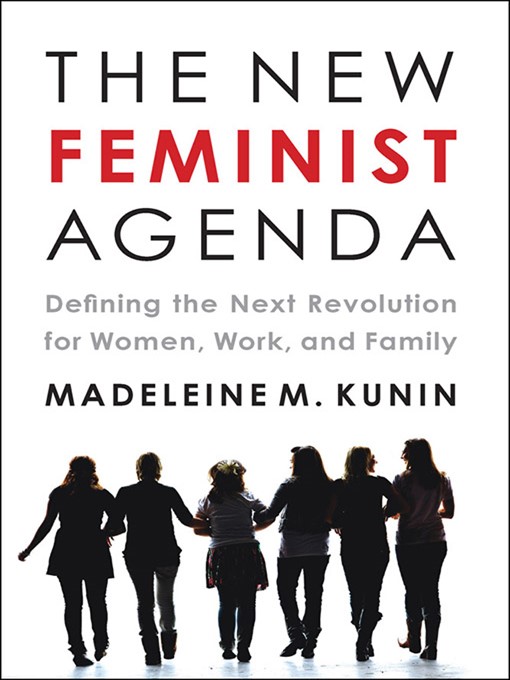
The New Feminist Agenda
Defining the Next Revolution for Women, Work, and Family
کتاب های مرتبط
- اطلاعات
- نقد و بررسی
- دیدگاه کاربران
نقد و بررسی

May 7, 2012
American feminism gets family-oriented marching orders in this data-laden call-to-arms. Vermont's first female governor, Kunin (Pearls, Politics, and Power) argues that a revolution in work-life balance is good for women, families, and even the world economy. In a genteel tone, feminists are urged to abandon "patience, silence, politeness" in favor of anger, imagination, and optimism in a multi-pronged battle for family-focused workplace flexibility and benefits. Kunin compares U.S. work policies and attitudes with those ranging from heavily subsidized Nordic laws, to the more measured approaches of the U.K., Canada, and Australia, arguing that reform makes good business, social, and political sense. The book backs up facts with sober voices from business, politics, and education, but it is Kunin's account of her journey from "original earth mother" to helming the Green Mountain State that crackles. This fiery septuagenarian ("I'm still angry," she tells her friends at lunch) maintains that equity and justice for families and children, particularly those living in poverty, will keep America competitive and advance the struggle for parity between the sexes, and urges feminists to unite across generations, social classes, sexual preferences, and politics. Though Kunin's passion is obvious in her anecdotes, a heavy-handed reliance on statistics and expert opinions will likely make this book appeal more to already-active feminists than to a general audience.

May 15, 2012
Kunin (Marsh Scholar Professor-at-Large, Univ. of Vermont; Living a Political Life), the former governor of Vermont, here catalogs the areas in which the feminist movement of the 1960s and 70s failed to achieve its goals, with the consequence that families must still negotiate the demands of work and home on their own. Comparing the United States to other Western democracies, Kunin concludes that citizens can resolve these problems by creating an inclusive movement of women and men "of all classes and backgrounds" to demand changes. She proposes diverting resources into early childhood education and paid family leave and encouraging private employers to permit flexible work schedules. She argues that more women are needed in public life and corporate management and that home responsibilities must be divided more equitably so that employers understand that both men and women workers have family commitments. VERDICT While the problems Kunin describes and the possible policy fixes (and obstacles) are well known to both academics and advocates, she seeks here to reach and mobilize an interested lay audience. This is a good primer on policies for ameliorating the work/family conflict, however unlikely their implementation may be in the near term.--Cynthia Harrison, George Washington Univ., Washington, DC
Copyright 2012 Library Journal, LLC Used with permission.

May 15, 2012
If You've Come a Long Way, Baby! was the rallying cry for the 1970s feminist movement, then But Not Far Enough could be the vanguard's chagrined chant now. From salary equity to corporate and civic leadership positions, the goals of the second wave of feminism are still far from being met. Pegging any advancement of the feminist cause to the substandard condition of the family, Kunin cogently examines myriad instances where feminist goals and family needs intersect. A former governor and U.S. ambassador, this working mother of four knows whereof she speaks. If a society is only as healthy as the least among its members, then the U.S.' paltry record vis-a-vis child care and employment programs that protect rather than penalize working parents of both genders has shown how those concerns are apparently of no concern to business executives and government leaders. Citing countless examples of how the U.S. compares with other industrialized nations on women's issues, Kunin offers reasonable advice for correcting an unreasonable situation.(Reprinted with permission of Booklist, copyright 2012, American Library Association.)

























دیدگاه کاربران